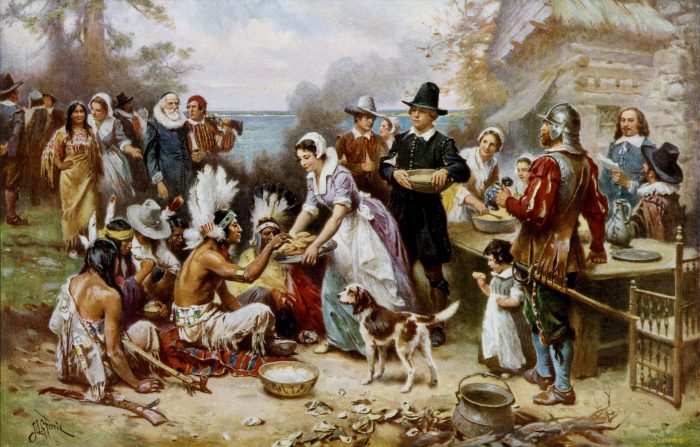
Last week our American friends celebrated Thanksgiving. A couple of thoughts came to mind as I reflected on this that, I hope, are helpful.
First, that it’s good to remember our stories: as individuals and communities we are formed and find our identity in the stories we tell about ourselves. For example, if she wanted to cross the road my great grandmother would simply stride into the (horse-drawn) traffic with her umbrella held aloft on the basis that her mission trumped everyone else’s. And I am reliably informed that if she wanted to read in bed she would balance a candle on her ample bosom and enjoy some moments of refuge after a traffic-stopping day. Now from these two brief accounts you probably have a better picture of dear old Great Grandma that if I had given you a list of facts: that she lived in Kingston, was born in the 1860s (I think) and so on. Stories shine light on our lives and give meaning to our existence; even more, they define us, they shape us.
In the case of the Pilgrim Fathers (a term not in currency until the mid nineteenth century) there is a certain mismatch between the facts and the story. The story tells how a group of devout pilgrims in search of a new promised land left the religiously corrupt Old World in a quest for freedom. How, after a year of overcoming various trials, they celebrated the first harvest in the brave new world in the company of new-found friends, the local indigenous tribe.
The reality is somewhat less romantic. The Mayflower, having left Plymouth on 6 September 1620 after various delays, arrived in the New World at the onset of winter after a gruelling two-month voyage. The one hundred or so passengers were a mixture of commercial opportunists and religious escapees, half of whom died before setting foot in the promised land. The remnant survived the first winter and had a harvest the following year only because of assistance from the local indigenous people. Furthermore, abandoned grain stores had been left in the area by those people giving them winter food—stores left behind after bubonic plague (presumably brought earlier by Europeans) had decimated the local population. The pilgrims thanked God for sending the plague so that they might have food.
The tension between story and fiction is a perennial issue but perhaps the real discriminator is the visible fruit in the lives of the storytellers. (After all, Jesus did tell us to judge a tree by its fruit.) If nothing else, the fruit that we see in today’s USA indicates that other stories are helping to define that nation and that perhaps the mythical nature of the Thanksgiving narrative means that its power to define is diminished. And before we throw stones at our American friends we might observe that our nation has similar problems: much of the support for Brexit was founded on the myth of ‘Great’ Britain as a world power.
I do not want to get into the deep waters of epistemology. Instead, let me just close with some things to ponder. This Advent season shines with the story of light breaking into the world’s darkness. Although, no doubt, the narrative has been edited and embellished it is nevertheless founded on certain historical events that are well-attested. It is a story that gives meaning to those events—helps us to realise their significance. Events on their own, however verifiable, do not bring truth; truth is found in the way those facts are woven into the world’s story and how our own little stories fit into the big picture. It seems to me that those who consider Christians naive for believing the story of Advent and suggest we should stick to ‘facts’ have lost sight of the fact that they have also built their lives on stories—just different ones—for, as I have noted, we are not formed by facts but by stories.
May the story of Advent flood your heart with light.
